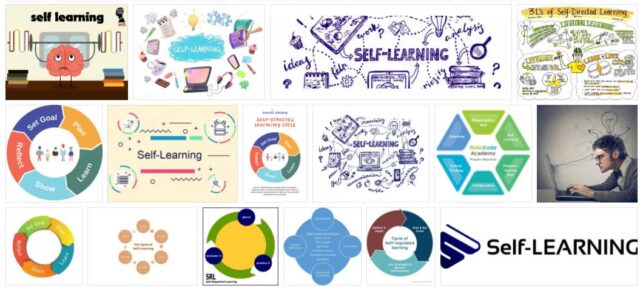The self – learning is how to learn by yourself. It is a process of acquiring knowledge, skills, values and attitudes, which the person carries out on their own either through study or experience. A subject focused on self-learning searches for the information himself and carries out the practices or experiments in the same way.
Self-learning often begins as a game, although over time what has been learned is found to be useful and valuable. People who manage to learn by themselves are known as self-taught.
It is important to note that self-learning does not occur only in humans, but mammals and other animals also have the ability to learn new skills in this way.
For people to bet on carrying out this way of learning and for them to be successful, it is important to highlight that they need three elements to be carried out. That is, they have to exist:
Responsibility. What this means is that the person in question has to be responsible when it comes to seeing their growth opportunities and working in that sense, to meet the objectives that have been set, to establish and follow work guidelines in order to achieve that learning you want.
Permanent learning. This type of learning is one that we have throughout our lives and in this case, what it means is that the person in question has to determine some routines and be constantly open to learning and working in that line. In this sense, we can continually learn from our environment, our work environment and also our educational environment.
Independent study. The term clearly leaves what you want to express with it. Specifically, what comes to define is the importance that each individual who is committed to self-learning must carry out not only the assumption of the personal commitment that he has in this sense but also the control of it and the responsibility to carry out carry out the measures it deems appropriate to do so.
The work habit, the discipline, the organization or the work habit are some of the formulas that every person has to be able to fulfill this independent study.
Among the advantages of self-learning, it is highlighted that this modality fosters curiosity and self-discipline, is usually more entertaining than formal learning, helps to form the personality and is more constructive (self-taught, when sharing information, exchange the roles of teacher and student).
On the other hand, among the main difficulties of self-learning, it must be taken into account that certain problems can be impossible or very difficult to solve.
Critics of self-learning consider that not all people develop the necessary tools to judge whether the information they obtain is reliable or objective. Therefore, they consider that learning should always be guided through certain levels. On the other hand, the self-taught person usually does not have social recognition, unlike those who obtain an official title.
